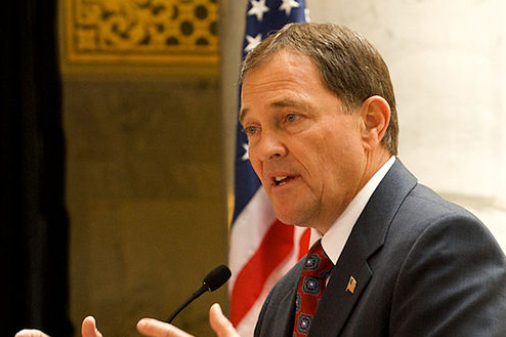
A Utah governor has warned that if publicly elected government officials across American states refuse to defend voter -approved laws, including gay marriage bans, it could lead to anarchy.
Utah Governor Gary Herbert this week slammed elected officials in other states for refusing to defend voter approved laws defining marriage as one man and one woman. He firmly reassured that Utah would not follow suit, and would fulfill its obligation to defend all state laws in the courts.
This week, both Oregon and Pennsylvania had gay marriage ban reversals upheld in court, and both states quickly announced that they would no longer appeal the rulings. Herbert called the states' decisions "the next step to anarchy."
"For elected officials, governors or attorney generals, to pick and choose what laws [they] will enforce I think is a tragedy, and is the next step to anarchy," he said in a news conference.
In numerous states across America, voters have approved amendments to their state constitutions to explicitly define marriage as between one man and one woman, effectively banning state officials from amending the definition of marriage to include same-sex couples. However, over the past year, numerous federal judges are ruling that the amendments are unconstitutional and reversing them.
"We have an obligation as a state to defend those laws," Herbert insisted.
Utah's 2004 gay marriage ban was ruled unconstitutional in a December 20, 2013 federal decision. An appeal is pending in the the 10th U.S. Circuit Court of Appeals.
Over 1,300 same-sex marriages were legalized before a stay on the decision was issued on January 6. The fiasco has been cited by other states in request for stays in similar cases.
On Monday, a judge ruled that Utah must recognize the gay marriages that were granted. Gov. Herbert said that the attorney general has not decided whether an appeal will be filed.
During the news conference, Herbert was asked his opinion on the comparison between same-sex marriage advocacy and the civil rights movement. He stated that the two are intrinsically different.
"What you choose to do with your sexual orientation is different in my mind than what you're born with as far as your race," Herbert said.
"What your attraction may be is something else, but how you act upon those impulses is a choice."













